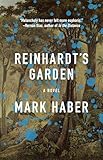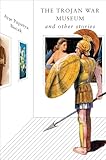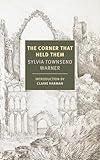Had a fun year this past year. No real reason for it. Ever have one of those? Just a good time. Each morning waking up, feeling swell. Glad to be awake. Each day not only a joy but memorable, you know? The kind you’re proud to tell your kid about. Days where you hate to shut your eyes, put an end to them. Nights swaddled in a rich thick sleep. Brain full of health and juices, taut, toothsome, like a lychee. Just a good year. How are things, people ask. Great, you say. Things are great.
The thing with having a swell year is that you spend a lot of your time kind of trying to get yourself as close to a state of big blank noise as you can. Like, degrade your waveform down into the background hiss, you know? Get the pitch of the nothing in your head closer to the pitch of the bigger nothing. On account of how good you feel. One way to do that is to stare at your phone, mouth open as if you’re gagging. Maybe make an animal whine. Importantly, reading a book is not a good means to that end. Chalk it up in the How Books Are Bad column, I guess: They shore you up as a reading subject instead of letting you blur out. What a misdeed. Probably we should stop making them. Or, me specifically, I should. Again, due to feeling good.
I read a few books in spite of that. Enjoyed some of those. Cried at most, probably. A real softy. That’s the hell of it, right? To still be there enough that the weather can blow you around a bit. If I’m gonna live with a crow in my mouth let it have the decency to stay there. It’s the coming and going, when you sort of realize how to move your mouth again, wiggle that jaw, close that throat, but you know the damned thing’ll come back to roost, that’s what’ll get you.
One note: I work for Catapult / Counterpoint / Soft Skull. I talk about their books online. Part of that job means being fair in the mention I give to our authors. Because of that, I won’t be mentioning any of our own books here, though they make up the bulk of my reading life. There isn’t space to talk about them all, so I won’t pick and choose.
I read A Maggot by John Fowles. Had this one on my shelf for a while. Only the second of his I’ve read, after that little book about trees and fathers. This one was a real delight, an epistolary murder mystery set in eighteenth century Britain—Exmoor among other places—involving puritans, Stonehenge, sex, satanic panic, jurisprudence and a hard pivot into the fantastic. I love thinking about the mood of this alongside some of the recent work of M. John Harrison.






 Reminded me, too, of parts of The Return of the Native, some of which I reread this year, as I’ve done every year lately. When he hides under the turf. The cart tucked away in a firelit cleft. The well. The mummers, outside in the cold waiting to enter. People mention Hardy’s cruelty to his characters but his greater cruelty is in reminding us again and again of the grave we miss but to which we can’t find the way back.
Reminded me, too, of parts of The Return of the Native, some of which I reread this year, as I’ve done every year lately. When he hides under the turf. The cart tucked away in a firelit cleft. The well. The mummers, outside in the cold waiting to enter. People mention Hardy’s cruelty to his characters but his greater cruelty is in reminding us again and again of the grave we miss but to which we can’t find the way back.
Another book I reread every year is After Ikkyu by Jim Harrison. These are poems, most of them toying with zen practice. They’re extremely Harrison—that is to say, they revel in a kind of needy gruffness, a deflation of romance, gentle horniness, some mourning, some birds and rocks thrown in for the hell of it. His dog sleeps on his zabuton. My admiration for Harrison is my northern Michigan birthright and I don’t expect I’ll shake it any time soon.
I read three chapbooks from speCT! Books in Oakland: Wildfires by my old colleague Will Vincent, Delphiniums by Amanda Nadelberg and selected emails by Jan-Henry Gray and enjoyed them all. The last is, ostensibly, a transcription of email from author to publisher leading up to the creation of itself, the chapbook, as an object. It engages directly with anxieties of creation, of deadlines, and—something poetry sidesteps as a rule—issues of veracity. If you work in publishing it will make you pale with inbox panic.
I read Wayward Heroes by Halldor Laxness, translated by Philip Roughton. Brilliant brilliant book. A novel that situates the heroics that inform the Poetic Edda in a more materialist context. The result is that the heroes look and speak like absolute psychopaths, go around slaughtering and robbing strangers with impunity, and act very much with an eye to fame and posterity. I’ve compared it—online—to a sort of pre-modern Icelandic Man Bites Dog.
Read Underland by Robert Macfarlane soon after. Another book dealing in graves, more explicitly so. Grave planet.
I read We Both Laughed in Pleasure: The Selected Diaries of Lou Sullivan edited by Ellis Martin and Zach Ozma. Bought it at McNally Jackson in Williamsburg, along with a book—I Thought I Saw an Elephant!—where you poke your finger in a hole and shift an elephant cutout around the page. Lou Sullivan was a gay transgender man and an early activist working to shape a space for men like himself, and the book pulls from his diaries, beginning as a ten year old in Wisconsin, up to his AIDS related death in ‘91. The writing is great, and, joyfully, aware of it’s own skill. The entries collected deal with obsession, politics, bodies (the sex scenes are great), medicine, longing. Easily one of the best things I read this year. My colleague Cal wrote about it here and you should read that.
I read some Stephen Dixon—not strictly because he died, though he did die. Mourned him a bit with his real fans. Me, I’m an interloper. Never knew him. Haven’t read his most famous work. I read a lot of 30: Pieces of a Novel, which is Dixon in a more, I dunno, Frederick Barthelme mode? Maybe that’s a shitty comparison. Reread some of What Is All This? Uncollected Stories, which is sometimes in a more gonzo mood. That book is an amazing object, kudos to Fantagraphics.
Read my first Mark Fisher this year, too—his Capitalist Realism. I’ll work my way through more. No rush, he also died and his work won’t get any less relevant, even after we seize the means to forge a continued path for human survival on this planet.
When you’re having a very good year, books are also a kind of nesting doll signifier for all the things you know yourself to enjoy, or have built an identity performing enjoyment of—online. “Am I capable of liking things” is a fun question you end up asking yourself with every page of every book you read, during a good year. I mean to say that when I tell you I liked a book, let’s understand that to mean I recognized it as good, decouple it from affect, yes?


 I read Camera by Marcelline Delbecq, translated by Emmelene Landon, very Kluge. Got that one as part of a gift from my wife, a subscription to Ugly Duckling Presse’s books in translation. One of the best gifts I’ve gotten in recent memory. Another highlight from what they sent: The Winter Garden Photograph by Cuban poet Reina Maria Rodriguez, translated by Kristin Dykstra and Nancy Gates Madsen. I’m flipping through that again right now and god these poems are so deeply satisfying, so controlled but a control that hints at the surreality at the core of all image. Like a dancer, taut, still form screaming abandon. Ha wait am I stumbling ass backward into THE DIALECTIC.
I read Camera by Marcelline Delbecq, translated by Emmelene Landon, very Kluge. Got that one as part of a gift from my wife, a subscription to Ugly Duckling Presse’s books in translation. One of the best gifts I’ve gotten in recent memory. Another highlight from what they sent: The Winter Garden Photograph by Cuban poet Reina Maria Rodriguez, translated by Kristin Dykstra and Nancy Gates Madsen. I’m flipping through that again right now and god these poems are so deeply satisfying, so controlled but a control that hints at the surreality at the core of all image. Like a dancer, taut, still form screaming abandon. Ha wait am I stumbling ass backward into THE DIALECTIC.
I finally read Slave Old Man by Patrick Chamoiseau, translated by Linda Coverdale. If I’d been paying attention enough to learn that it engages with the work of Edouard Glissant I’d have grabbed it sooner. I loved this book. I loved the generosity of the translation, the end notes, the structure, all of it. There is a page about midway through where the narration, switches from close third to first; I had to cover my face at the recognition of what Chamoiseau was doing there, the force of it. It’s a novel, too, in explicit conversation with Walcott.

 I read Mark Haber’s wonderful and fun Reinhardt’s Garden, which is a bit Fitzcarraldo by way of Thomas Bernhard and Robert Burton. The Bernhard comparison, and what we mean when we toss that name around, is explicitly addressed in this conversation he had with Martin Riker.
I read Mark Haber’s wonderful and fun Reinhardt’s Garden, which is a bit Fitzcarraldo by way of Thomas Bernhard and Robert Burton. The Bernhard comparison, and what we mean when we toss that name around, is explicitly addressed in this conversation he had with Martin Riker.
I read Joao Gilberto Noll’s Lord, another fugue state narration that kind of bridges a gap—stylistically—between the Haber and the Chamoiseau. All the Noll I’ve read thus far thrums with dread, alienation, misunderstanding between character and world and reader and character, and this is no different. I’m such a fan.




 Read a couple of books by other contributors to the year in reading this year. What’s the etiquette on commenting on those? Happily enough I enjoyed them both—Females by Andrea Long Chu and The Trojan War Museum and Other Stories by Ayşe Papatya Bucak. Females is that rare joy, a book that starts with a premise and works through consequences. And, too, I knew so little about Valerie Solanas going into it. What did I do in college? The Trojan War Museum I haven’t been able to get out of my head—tender and haunting.
Read a couple of books by other contributors to the year in reading this year. What’s the etiquette on commenting on those? Happily enough I enjoyed them both—Females by Andrea Long Chu and The Trojan War Museum and Other Stories by Ayşe Papatya Bucak. Females is that rare joy, a book that starts with a premise and works through consequences. And, too, I knew so little about Valerie Solanas going into it. What did I do in college? The Trojan War Museum I haven’t been able to get out of my head—tender and haunting.
I read The Corner That Held Them by Sylvia Townsend Warner and quickly found myself a very loud evangelist for it. This is a brilliant materialist novel that begins with a kind of “Matty Groves” scene—adultery, naked swordplay—but then immediately sends you into a convent where you follow nuns trying to find ways to pay for bridge upkeep over something like 400 pages and 300 years. This is what I want in a novel. Tell me who’s bringing the firewood and why. Who milks the cows when the black death rolls through and what happens the season after? It’s great for fans of Tuchman’s A Distant Mirror.
I read The Incompletes by Sergio Chejfec, translated by Heather Cleary. Chejfec has been the author of some of the most lasting scenes in my reading life—fleeting things: fences, muddy pathways, a bird, a stretch of track. The Incompletes revels in clue-ness, significance, but with no puzzle or expectation of an answer. Chejfec is one of the great writers of our age and this is no exception.

 I read Animalia by Jean-Baptiste Del Amo, translated by Frank Wynne. It was grim and somehow—a neat trick—silent, if you know what I mean. I don’t know what I mean. Another of the best books I read this year, and a kind of answer to Zola. Ah, I see now Grove even cites Zola in their damned copy for the book. Well, it’s apt. Hi Grove. Animalia opens with a family of French peasant farmers and gets meatier and more foul over the course of decades as industrialized capitalism and mechanized death progress. It was an interesting pairing with the only Counterpoint book I’ll cite, Jean Giono’s Joy of Man’s Desiring. He’s dead, it’s fine, it’s fine to talk about this one. That novel, too, opens with a peasant farmer on a hardscrabble farm in France. In Giono’s case, though, it’s a book about rediscovering communal joy and wonder, a beautiful novel, written in ‘36 when Giono was a vocal pacifist. It’s almost a direct inverse of Del Amo’s book in every way and I far preferred Animalia. I’d be curious to hear if he’s read it and his thoughts on it.
I read Animalia by Jean-Baptiste Del Amo, translated by Frank Wynne. It was grim and somehow—a neat trick—silent, if you know what I mean. I don’t know what I mean. Another of the best books I read this year, and a kind of answer to Zola. Ah, I see now Grove even cites Zola in their damned copy for the book. Well, it’s apt. Hi Grove. Animalia opens with a family of French peasant farmers and gets meatier and more foul over the course of decades as industrialized capitalism and mechanized death progress. It was an interesting pairing with the only Counterpoint book I’ll cite, Jean Giono’s Joy of Man’s Desiring. He’s dead, it’s fine, it’s fine to talk about this one. That novel, too, opens with a peasant farmer on a hardscrabble farm in France. In Giono’s case, though, it’s a book about rediscovering communal joy and wonder, a beautiful novel, written in ‘36 when Giono was a vocal pacifist. It’s almost a direct inverse of Del Amo’s book in every way and I far preferred Animalia. I’d be curious to hear if he’s read it and his thoughts on it.
When I read, in the span of this, the good year, I read alongside a better me, one having less of a swell time, a self who is not having and has never had a very fun year. And for every moment in which I fuzzed out or slept or hid my face beneath the cool darkness of a book just to hide, he kept reading and he felt the words. He felt them, not just the echo of when another reader might be expected to feel them. He felt them and he felt happy to feel them. What a clown.
More from A Year in Reading 2019
Do you love Year in Reading and the amazing books and arts content that The Millions produces year round? We are asking readers for support to ensure that The Millions can stay vibrant for years to come. Please click here to learn about several simple ways you can support The Millions now.
Don’t miss: A Year in Reading 2018, 2017, 2016, 2015, 2014, 2013, 2012, 2011, 2010, 2009, 2008, 2007, 2006, 2005
The post A Year in Reading: Dustin Kurtz appeared first on The Millions.
Source : A Year in Reading: Dustin Kurtz







